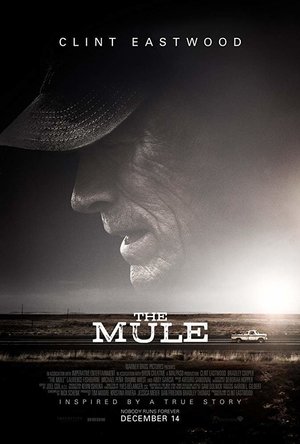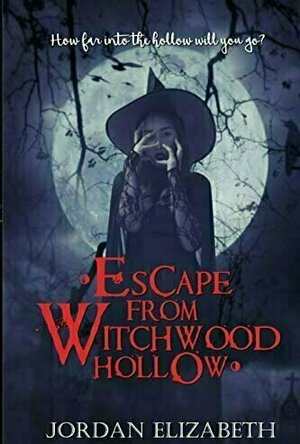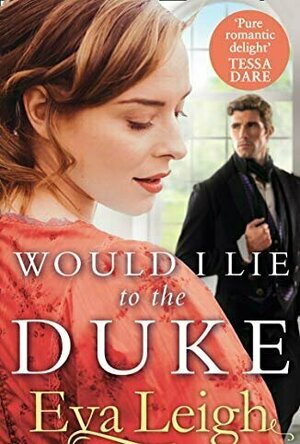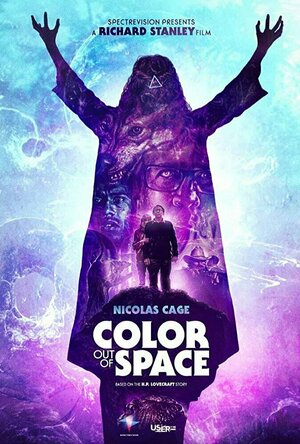Search
Hazel (1853 KP) rated The Care and Management of Lies in Books
Dec 17, 2018
<i>I received this book for free through Goodreads First Reads.</i>
British author Jacqueline Winspear states in the letter from the author at the front of the book that the idea for this novel came from a second hand copy of a book titled <i>The Woman’s Book</i> by Florence B Jack (1911) containing an inscription revealing that it was presented as a gift to a woman on her wedding day in July 1914. The story within </i>The Care and Management of Lies</i> is Winspear’s imaginings about who that woman was and what her life was like.
The book focuses primarily on four characters, the main being Kezia Brissenden née Marchant who receives the gift <i>The Woman’s Book</i> from a close friend, Dorothy “Thea”, who so happens to be the older sister of her new husband, Tom. The book was not a particularly kind gift as it emphasized Kezia’s upbringing and who, due to her father being a reverend and employer of maids and cooks, had never produced her own meal in her life nor had any experience with running a household, let alone a farm – her new home.
Whilst Kezia determinedly throws herself into her new role, showing her love for Tom through the food she learns to cook, Thea, living in London, is drifting away from their friendship. With the possibility of war on the horizon, Thea joins a pacifist movement, which is somewhat ironic as she was once involved with the suffragettes. On the other hand, once war is declared, Tom decides to enlist in the army as does neighbour, Edmund Hawkes, a man who is rather envious of Tom and his lovely wife. The reader receives two different perspectives of the terrors of war from these characters, but then also another, surprisingly, from Thea who rejects pacifism and goes out to France to help in anyway she can. This leaves Kezia at home alone with the effects the war has on Britain.
The love between Kezia and Tom is emphasized through the letters they send each other. Both are lying about their situations by trying to convince the other that they are better off than they really are. The thing that keeps them both going are Kezia’s descriptions of her fictional meals that she prepares for Tom’s dinner, describing in great detail the preparation and taste of the food.
Each chapter begins with a quote from <i>The Woman’s Book</i> (and later <i>Infantry Training</i> and <i>Field Service Pocket Book</i>) that relate to the particular events occurring in the story at that time. This is a great way of underlining the significance of that wedding present to the storyline.
The narrative quickly changes from character to character which, although helping to keep the pace of the novel, can sometimes be a little confusing. It also made it difficult to get into the story at the beginning. Sometimes it took a lot of concentration to follow the text and those with minds that easily wander may constantly find themselves suddenly reading from a different point of view without having noticed the change over.
Winspear’s grandfather was a soldier in the trenches during the Great War and so it seems likely that some of the scenes may be based on his experiences. If that is the case then it can be believed that <i>The Care and Management of Lies</i> is as accurate as can be in terms of the war and life on the front lines. Winspear also does not attempt to gloss over any of the war horrors, therefore does not create the unlikely “and they all lived happily ever after” ending that other writers of war stories have done in the past.
Those interested in war themes may be particularly interested in this book, especially as this year (2014) is the anniversary of the Great War. <i>The Care and Management of Lies</i> is a piece of literature to add to the mountain of media coverage of the commemoration of the war.
British author Jacqueline Winspear states in the letter from the author at the front of the book that the idea for this novel came from a second hand copy of a book titled <i>The Woman’s Book</i> by Florence B Jack (1911) containing an inscription revealing that it was presented as a gift to a woman on her wedding day in July 1914. The story within </i>The Care and Management of Lies</i> is Winspear’s imaginings about who that woman was and what her life was like.
The book focuses primarily on four characters, the main being Kezia Brissenden née Marchant who receives the gift <i>The Woman’s Book</i> from a close friend, Dorothy “Thea”, who so happens to be the older sister of her new husband, Tom. The book was not a particularly kind gift as it emphasized Kezia’s upbringing and who, due to her father being a reverend and employer of maids and cooks, had never produced her own meal in her life nor had any experience with running a household, let alone a farm – her new home.
Whilst Kezia determinedly throws herself into her new role, showing her love for Tom through the food she learns to cook, Thea, living in London, is drifting away from their friendship. With the possibility of war on the horizon, Thea joins a pacifist movement, which is somewhat ironic as she was once involved with the suffragettes. On the other hand, once war is declared, Tom decides to enlist in the army as does neighbour, Edmund Hawkes, a man who is rather envious of Tom and his lovely wife. The reader receives two different perspectives of the terrors of war from these characters, but then also another, surprisingly, from Thea who rejects pacifism and goes out to France to help in anyway she can. This leaves Kezia at home alone with the effects the war has on Britain.
The love between Kezia and Tom is emphasized through the letters they send each other. Both are lying about their situations by trying to convince the other that they are better off than they really are. The thing that keeps them both going are Kezia’s descriptions of her fictional meals that she prepares for Tom’s dinner, describing in great detail the preparation and taste of the food.
Each chapter begins with a quote from <i>The Woman’s Book</i> (and later <i>Infantry Training</i> and <i>Field Service Pocket Book</i>) that relate to the particular events occurring in the story at that time. This is a great way of underlining the significance of that wedding present to the storyline.
The narrative quickly changes from character to character which, although helping to keep the pace of the novel, can sometimes be a little confusing. It also made it difficult to get into the story at the beginning. Sometimes it took a lot of concentration to follow the text and those with minds that easily wander may constantly find themselves suddenly reading from a different point of view without having noticed the change over.
Winspear’s grandfather was a soldier in the trenches during the Great War and so it seems likely that some of the scenes may be based on his experiences. If that is the case then it can be believed that <i>The Care and Management of Lies</i> is as accurate as can be in terms of the war and life on the front lines. Winspear also does not attempt to gloss over any of the war horrors, therefore does not create the unlikely “and they all lived happily ever after” ending that other writers of war stories have done in the past.
Those interested in war themes may be particularly interested in this book, especially as this year (2014) is the anniversary of the Great War. <i>The Care and Management of Lies</i> is a piece of literature to add to the mountain of media coverage of the commemoration of the war.
Lee (2222 KP) rated The Mule (2018) in Movies
Jan 29, 2019 (Updated Jan 29, 2019)
A simple, enjoyable story
It appears there's just no stopping Clint Eastwood. Not only does he star in The Mule, a movie 'inspired by a true story', but he's also on producing and directing duties too. Just when you think you've seen him in his last ever role, he's back, 88 years old and still going strong!
Eastwood is Earl Stone, a highly successful horticulturist and Korean war veteran who we first meet in 2005. He arrives at a horticulture convention where he charms the ladies, engages in friendly competitive banter with other exhibitors and sneers at the guy promoting a new way of ordering flowers over the internet, before going on to win first prize for best bloom. But over the years all of this success has been at the expense of his family and while he's buying everyone in the bar a drink to celebrate his win, his daughter is getting married, wondering where her father is while her mother consoles her. A life on the road devoted to work has lost Earl the most important thing in life.
Shifting forward 12 years to 2017 and Earl has been forced to close up the flower business, blaming the damn internet for it all. He pays off his farm workers as best he can before heading off to his granddaughters house where she is holding a garden party. His presence only causes tension though - his daughter can't bear to be anywhere near him, while his ex wife takes the opportunity to once again give him a piece of her mind, disappointed that despite a lifelong devotion to work, he now can't even afford to help pay for his granddaughters upcoming wedding.
So when an offer comes his way, working as a mule for the cartel in return for good money, Earl accepts. An old man traveling, with no previous speeding tickets, is less likely to be stopped than the traditional Latinos they usually use, and Earl benefits by continuing his love of traveling the country in his trusty old truck. He tries the charming old man routine with the cartel members he comes into contact with on both sides of his deliveries, with varying degrees of success, but in-between he manages to just enjoy life - driving on the open road, singing along to the radio for hours on end. And the money certainly is good - Earl is able to buy a brand new truck, help pay for his granddaughters wedding and even help prevent a bar he's been going to for the last 50 or so years from closing. He gradually becomes more trusted within the cartel, becoming responsible for transporting increasingly larger quantities of drugs and drawing the attention of the more powerful cartel members. Attending big parties at their lavish houses, dancing with bikini clad girls and engaging in threesomes, this ninety something certainly is making the most of his twilight years! As power shifts within the cartel and Earl gets drawn deeper in, he finds himself having to decide between the cartel and his family. A decision with very different but serious consequences depending on which path he chooses.
All the while Earl is having his fun, the net is closing in on him in the form of a couple of DEA agents played by Bradley Cooper and Michael Peña. Under pressure to secure a bust from boss Lawrence Fishburne, they're getting closer and closer to capturing the cartels top mule. All three of these actors are seriously underused though in what are essentially pretty standard cop roles.
The Mule is a fairly simple movie with no big sense of drama, and certainly no Breaking Bad levels of cartel tension. However, I was never bored at any point and just found myself completely engrossed in it all, swept along by the genial nature of Earl and what was an enjoyable, sentimental story.
Eastwood is Earl Stone, a highly successful horticulturist and Korean war veteran who we first meet in 2005. He arrives at a horticulture convention where he charms the ladies, engages in friendly competitive banter with other exhibitors and sneers at the guy promoting a new way of ordering flowers over the internet, before going on to win first prize for best bloom. But over the years all of this success has been at the expense of his family and while he's buying everyone in the bar a drink to celebrate his win, his daughter is getting married, wondering where her father is while her mother consoles her. A life on the road devoted to work has lost Earl the most important thing in life.
Shifting forward 12 years to 2017 and Earl has been forced to close up the flower business, blaming the damn internet for it all. He pays off his farm workers as best he can before heading off to his granddaughters house where she is holding a garden party. His presence only causes tension though - his daughter can't bear to be anywhere near him, while his ex wife takes the opportunity to once again give him a piece of her mind, disappointed that despite a lifelong devotion to work, he now can't even afford to help pay for his granddaughters upcoming wedding.
So when an offer comes his way, working as a mule for the cartel in return for good money, Earl accepts. An old man traveling, with no previous speeding tickets, is less likely to be stopped than the traditional Latinos they usually use, and Earl benefits by continuing his love of traveling the country in his trusty old truck. He tries the charming old man routine with the cartel members he comes into contact with on both sides of his deliveries, with varying degrees of success, but in-between he manages to just enjoy life - driving on the open road, singing along to the radio for hours on end. And the money certainly is good - Earl is able to buy a brand new truck, help pay for his granddaughters wedding and even help prevent a bar he's been going to for the last 50 or so years from closing. He gradually becomes more trusted within the cartel, becoming responsible for transporting increasingly larger quantities of drugs and drawing the attention of the more powerful cartel members. Attending big parties at their lavish houses, dancing with bikini clad girls and engaging in threesomes, this ninety something certainly is making the most of his twilight years! As power shifts within the cartel and Earl gets drawn deeper in, he finds himself having to decide between the cartel and his family. A decision with very different but serious consequences depending on which path he chooses.
All the while Earl is having his fun, the net is closing in on him in the form of a couple of DEA agents played by Bradley Cooper and Michael Peña. Under pressure to secure a bust from boss Lawrence Fishburne, they're getting closer and closer to capturing the cartels top mule. All three of these actors are seriously underused though in what are essentially pretty standard cop roles.
The Mule is a fairly simple movie with no big sense of drama, and certainly no Breaking Bad levels of cartel tension. However, I was never bored at any point and just found myself completely engrossed in it all, swept along by the genial nature of Earl and what was an enjoyable, sentimental story.
Hazel (1853 KP) rated Escape from Witchwood Hollow in Books
Dec 7, 2018
<i>This eBook was sent to me by the author in exchange for an honest review </i>
Jordan Elizabeth combines contemporary and historical fiction in this mystical young adult novel.<i> Escape From Witchwood Hollow</i> begins in October 2001 with teenage Honoria who has recently moved to the countryside in New York. Not only is it a huge contrast from the life she knew in the city, there is also a local legend that she becomes fascinated with: if you go into the woods a witch will capture you and never let you leave.
This story, however, is not only about Honoria. Back in 1850, Albertine moves from England to New York to be with her father. Ignoring the rumours about Witchwood Hollow, she ventures into the woods hoping that it will be a shortcut to her father’s farm. When she becomes hopelessly lost she begins to question the actuality of the tale of the witch.
As the two stories go on they begin to merge together as Honoria investigates deeper into the legend and Albertine begins to learn the truth. It also appears that the two girls are in some way connected.
Although <i>Escape From Witchwood Hollow</i> is primarily focused on the paranormal aspect of the story, it also deals with the way in which a teenage girl deals with drastic change. Albertine is motherless and living as a maid, however that is nothing compared to the grief Honoria is dealing with. Her parents were two of the victims in the collapse of the World Trade Centers. Not only has she got to come to terms with the loss, she has to cope with moving house, changing schools and making new friends.
The concept of <i>Escape From Witchwood Hollow</i> sounds exciting yet, at least for me, it was not as interesting to read. I far more enjoyed the chapters focused on Albertine rather than Honoria. Perhaps that is because it is easier to admire Albertine’s sense independence and determination, whereas Honoria appears to have a more depressed view of the world (although that is not surprising judging what she has been through).
Overall,<i> Escape From Witchwood Hollow</i> is a decent book to read when you are looking for something quick that will pass the time. It is fast paced and becomes gripping towards the end - particularly when you realize there are not many pages left and nothing has yet been resolved – before coming to a shocking conclusion.
Jordan Elizabeth combines contemporary and historical fiction in this mystical young adult novel.<i> Escape From Witchwood Hollow</i> begins in October 2001 with teenage Honoria who has recently moved to the countryside in New York. Not only is it a huge contrast from the life she knew in the city, there is also a local legend that she becomes fascinated with: if you go into the woods a witch will capture you and never let you leave.
This story, however, is not only about Honoria. Back in 1850, Albertine moves from England to New York to be with her father. Ignoring the rumours about Witchwood Hollow, she ventures into the woods hoping that it will be a shortcut to her father’s farm. When she becomes hopelessly lost she begins to question the actuality of the tale of the witch.
As the two stories go on they begin to merge together as Honoria investigates deeper into the legend and Albertine begins to learn the truth. It also appears that the two girls are in some way connected.
Although <i>Escape From Witchwood Hollow</i> is primarily focused on the paranormal aspect of the story, it also deals with the way in which a teenage girl deals with drastic change. Albertine is motherless and living as a maid, however that is nothing compared to the grief Honoria is dealing with. Her parents were two of the victims in the collapse of the World Trade Centers. Not only has she got to come to terms with the loss, she has to cope with moving house, changing schools and making new friends.
The concept of <i>Escape From Witchwood Hollow</i> sounds exciting yet, at least for me, it was not as interesting to read. I far more enjoyed the chapters focused on Albertine rather than Honoria. Perhaps that is because it is easier to admire Albertine’s sense independence and determination, whereas Honoria appears to have a more depressed view of the world (although that is not surprising judging what she has been through).
Overall,<i> Escape From Witchwood Hollow</i> is a decent book to read when you are looking for something quick that will pass the time. It is fast paced and becomes gripping towards the end - particularly when you realize there are not many pages left and nothing has yet been resolved – before coming to a shocking conclusion.
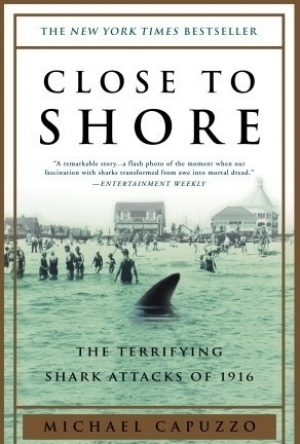
Close to Shore: The Terrifying Shark Attacks of 1916
Book
Combining rich historical detail and a harrowing, pulse-pounding narrative, Close to Shore...
Neon's Nerd Nexus (360 KP) rated Rambo: Last Blood (2019) in Movies
Sep 19, 2019
Last Bore
Rambo Last Blood is a bloody mess of a movie that feels so disjointed from all the other rambo films it will leave you confused and unfulfilled. Its starts of fine enough, we see Rambo in an ordinary life taking care of the farm doing average day to day tasks and growing old but clearly still troubled and haunted by his memories of war. We are then introduced to a couple of people he cares a lot about and from there trouble starts to brew. Problem is this beginning segment is an absolute shambles, not only is it extremely boring and tedious every single character is highly unlikeable, hollow, bland and annoying with no personality either. Then on top of that we have writing and dialog that are woeful almost like no effort was put into them whatsoever and the sad part is we are forced to sit through well over an hour of this too. This hour at times was actually so painful to watch especially for a film that knows most of us are only there for the kills. After waiting that long and sitting through a story that feels like it was meant for a Taken sequel you would think the action would make up for it..... right?. Wrong, while action is ok its still not great coming off more of a brief kill montage more than anything else. Kills are deliciously brutal thats for sure but they feel rushed because the film just cant wait to move on to the next one as fast as it can. All this brutal killing also at times can feel a little ujustified too making me acquire a disconnect from the Rambo we have come to know and love. If this film was meant to be another sequel it fails, if it was meant to be a Rambo tribute it fails and to top it all off it just ends abruptly out of no where with no real conclusion or point to be made. Last Blood seems like it didnt try to be a good film or a fun film and it left me confused, bored and baffled to why it exists at all. There are a few brief over the top cool kills but all in all its a pointless movie thats not worth anyones time. To top it all off my bike got stolen while I was inside watching this too and I have to say I got more excitement from seeing that had happened than watching this crap. Rambo Last Blood more like Rambo Last Bike.
Ivana A. | Diary of Difference (1171 KP) rated Would I Lie to the Duke (Union of the Rakes, #2) in Books
Oct 5, 2020
<a href="https://amzn.to/2Wi7amb">Wishlist</a>; | <a
<a href="https://diaryofdifference.com/">Blog</a>; | <a href="https://www.facebook.com/diaryofdifference/">Facebook</a>; | <a href="https://twitter.com/DiaryDifference">Twitter</a>; | <a href="https://www.instagram.com/diaryofdifference/">Instagram</a>; | <a
<a href="https://ko-fi.com/diaryofdifference">Ko-fi</a>;
<img src="https://i2.wp.com/diaryofdifference.com/wp-content/uploads/2020/09/Book-Review-Banner-35.png?resize=768%2C432&ssl=1"/>;
Thank you to Mills & Boon, for sending me a copy of Would I Lie to the Duke by Eva Leigh, and for the opportunity to participate on this blog tour.
Would I Lie to the Duke by Eva Leigh is the second book in the Union of the Rakes series. It can be easily read as a standalone though.
<b><i>Synopsis:</i></b>
This is the story of Jessica McGale. Her family business is in need of investors, after it collapses due to a fire. Jessica is determined to acquire investors for her business at any cost. When she realises that London’s elite will never give a chance to a humble farm girl like herself, she does the unthinkable. She poses as “Lady Whitfield” and joins the elite on the table. She especially tries to get close to the Duke of Rotherby, as his influence and support could save her company. But one thing Jess never expected to happen, is to grow feelings for him.
Noel is the carefree and notorious duke, but only his close friends truly know him. When he meets Lady Whitfield at the business bazaar, his world shifts. She makes him want to obey every command she tells, which is something he never imagined doing. He struggles to trust people, but trusting Jess is so easy.
But what happens when the business bazaar is over, and so is the fake portrayal of Lady Whitfield? How do you cope when someone has lied to you, but you want them in your life forever? Read this amazing book to find out!
<b><i>My Thoughts:</i></b>
I was so hooked about this book, and I finished it in two days. While the plot is a bit predictable and it has a Cinderella vibe to it, I still enjoyed it a lot.
I could completely understand where Jess was coming from, and in order to save her business, I don’t think there were any other options, given how much rejection she faced in the first chapters. But as soon as she started developing feelings, she should’ve been honest with Noel. The person in me felt uncomfortable for her every single time she would deliberately put herself in an awkward situation and not tell the truth when she had a chance to. And the business trip to the farm? Oh, that got me biting my nails again. I also understand that continuing with the deception was a crucial part of the plot, to produce the drama that it did, but I am just not a fan of dishonesty.
<b><i>Noel was an amazing character, even though, at times, he seemed like the typical rich boy.</i></b>
I loved the way his relationship with Jess progressed during the couple of days, and how he started opening up. Honestly, I didn’t believe it at first, given that it was based on a lie. I thought that given the fact how much trust issues he had, he could never get past her betrayal. And for me, his way of coping and resolving the issue didn’t fit with his character. I have the feeling that people who are lucky enough to have a high income and live in the elite societies are much more wary of “gold diggers”, and everything Jess does (even though for a good reason), seems to be for her business. So I wouldn’t have blamed him if he reacted in a way more different way and just told her to “bugger off”.
Overall, I enjoyed Would I Lie to the Duke and it was a very pleasurable short read to get me away from reality. I don’t always dive into historical romance, and this was a surprising change that ended on a positive note. Honestly, I am glad that it sparks a debate in my mind and makes me think of “what I would have done” on either side of the relationship. I would have acted very differently. And maybe that’s the reason I’m not married to a duke (yet).
<a href="https://diaryofdifference.com/">Blog</a>; | <a href="https://www.facebook.com/diaryofdifference/">Facebook</a>; | <a href="https://twitter.com/DiaryDifference">Twitter</a>; | <a href="https://www.instagram.com/diaryofdifference/">Instagram</a>; | <a
<a href="https://ko-fi.com/diaryofdifference">Ko-fi</a>;
<img src="https://i2.wp.com/diaryofdifference.com/wp-content/uploads/2020/09/Book-Review-Banner-35.png?resize=768%2C432&ssl=1"/>;
Thank you to Mills & Boon, for sending me a copy of Would I Lie to the Duke by Eva Leigh, and for the opportunity to participate on this blog tour.
Would I Lie to the Duke by Eva Leigh is the second book in the Union of the Rakes series. It can be easily read as a standalone though.
<b><i>Synopsis:</i></b>
This is the story of Jessica McGale. Her family business is in need of investors, after it collapses due to a fire. Jessica is determined to acquire investors for her business at any cost. When she realises that London’s elite will never give a chance to a humble farm girl like herself, she does the unthinkable. She poses as “Lady Whitfield” and joins the elite on the table. She especially tries to get close to the Duke of Rotherby, as his influence and support could save her company. But one thing Jess never expected to happen, is to grow feelings for him.
Noel is the carefree and notorious duke, but only his close friends truly know him. When he meets Lady Whitfield at the business bazaar, his world shifts. She makes him want to obey every command she tells, which is something he never imagined doing. He struggles to trust people, but trusting Jess is so easy.
But what happens when the business bazaar is over, and so is the fake portrayal of Lady Whitfield? How do you cope when someone has lied to you, but you want them in your life forever? Read this amazing book to find out!
<b><i>My Thoughts:</i></b>
I was so hooked about this book, and I finished it in two days. While the plot is a bit predictable and it has a Cinderella vibe to it, I still enjoyed it a lot.
I could completely understand where Jess was coming from, and in order to save her business, I don’t think there were any other options, given how much rejection she faced in the first chapters. But as soon as she started developing feelings, she should’ve been honest with Noel. The person in me felt uncomfortable for her every single time she would deliberately put herself in an awkward situation and not tell the truth when she had a chance to. And the business trip to the farm? Oh, that got me biting my nails again. I also understand that continuing with the deception was a crucial part of the plot, to produce the drama that it did, but I am just not a fan of dishonesty.
<b><i>Noel was an amazing character, even though, at times, he seemed like the typical rich boy.</i></b>
I loved the way his relationship with Jess progressed during the couple of days, and how he started opening up. Honestly, I didn’t believe it at first, given that it was based on a lie. I thought that given the fact how much trust issues he had, he could never get past her betrayal. And for me, his way of coping and resolving the issue didn’t fit with his character. I have the feeling that people who are lucky enough to have a high income and live in the elite societies are much more wary of “gold diggers”, and everything Jess does (even though for a good reason), seems to be for her business. So I wouldn’t have blamed him if he reacted in a way more different way and just told her to “bugger off”.
Overall, I enjoyed Would I Lie to the Duke and it was a very pleasurable short read to get me away from reality. I don’t always dive into historical romance, and this was a surprising change that ended on a positive note. Honestly, I am glad that it sparks a debate in my mind and makes me think of “what I would have done” on either side of the relationship. I would have acted very differently. And maybe that’s the reason I’m not married to a duke (yet).
Jesters_folly (230 KP) rated Color Out of Space (2019) in Movies
Nov 10, 2020
Contains spoilers, click to show
Color out of Space Is a film based on a H.P. Lovecraft staring Nicholas Cage so you know it's going to be weird.
So, tell me if you've heard this one before. A meteor lands on an isolated farm and the farmer and his family have to fight off what it brought with it. If this sound familiar then that because it's been used so often it's become a common Sci-Fi trope but, all tropes have to come from somewhere and the works of Lovecraft have interwoven themselves into many modern works. I mention this because, as well as it's main premise, there are a lot of familiar scenes and concepts. You see creatures that remind you of the 'Thing' and transformations reminiscent of the original 'Quatermass Experiment' as well as creepy kids and a well but you have to remember that Color out of Space is most likely the source material and not the other way round (The Thing it's self is filled with Lovecraftian ideas even though it's based on a story by different author.)
As the films title hints, the actual creature is a color (or Colour if you're English) which is a strange concept in its self and the effects it has on the world around it only unfold slowly but, like in the other films I've mentioned, they end in horror (and body horror).
The theme of colour, even in it's strange use here, leads to the film being pretty in parts and as the film goes on the landscape takes on eerie life of it's own very much like the Martian weed taking over London in 'War of the Worlds'.
The film it's self is odd, you keep expecting the main family to be one of those stereotypical dysfunctional family's but, every time they seem to falling apart they pull together and, even their decent into madness doesn't pull them apart. The whole thing is made even strange by Nicholas Cage who is his usual, over the top self; Throwing tantrums and monologing to people who aren't really there, although, I'm happy to say his performance is not as OTT as it was in 'Mandy' where he went full Cage (which was great for that film but Color out of space is slightly more subdued, slightly but not much.)
There is blood but most of the horror either happens off screen or is just implied and even the monsters are just there just to be seen, although they do have a point to the story.
Color out of Space is a good but slightly strange cosmic horror with Nicholas Cage being as strange as usual aided in his strangeness by Madeleine Arthur, playing his daughter, Lavinia. with the exception of Tommy Chong's Ezra the rest of the cast play it mostly straight.
So, tell me if you've heard this one before. A meteor lands on an isolated farm and the farmer and his family have to fight off what it brought with it. If this sound familiar then that because it's been used so often it's become a common Sci-Fi trope but, all tropes have to come from somewhere and the works of Lovecraft have interwoven themselves into many modern works. I mention this because, as well as it's main premise, there are a lot of familiar scenes and concepts. You see creatures that remind you of the 'Thing' and transformations reminiscent of the original 'Quatermass Experiment' as well as creepy kids and a well but you have to remember that Color out of Space is most likely the source material and not the other way round (The Thing it's self is filled with Lovecraftian ideas even though it's based on a story by different author.)
As the films title hints, the actual creature is a color (or Colour if you're English) which is a strange concept in its self and the effects it has on the world around it only unfold slowly but, like in the other films I've mentioned, they end in horror (and body horror).
The theme of colour, even in it's strange use here, leads to the film being pretty in parts and as the film goes on the landscape takes on eerie life of it's own very much like the Martian weed taking over London in 'War of the Worlds'.
The film it's self is odd, you keep expecting the main family to be one of those stereotypical dysfunctional family's but, every time they seem to falling apart they pull together and, even their decent into madness doesn't pull them apart. The whole thing is made even strange by Nicholas Cage who is his usual, over the top self; Throwing tantrums and monologing to people who aren't really there, although, I'm happy to say his performance is not as OTT as it was in 'Mandy' where he went full Cage (which was great for that film but Color out of space is slightly more subdued, slightly but not much.)
There is blood but most of the horror either happens off screen or is just implied and even the monsters are just there just to be seen, although they do have a point to the story.
Color out of Space is a good but slightly strange cosmic horror with Nicholas Cage being as strange as usual aided in his strangeness by Madeleine Arthur, playing his daughter, Lavinia. with the exception of Tommy Chong's Ezra the rest of the cast play it mostly straight.

Christmas Song Collection - Xmas songs for Kids
Education and Games
App
~~~ 6 wonderful Christmas spirited, animated and interactive children songs inside! ~~~ ~~~ Child...

Fantasy Ranch
Tabletop Game
Welcome to Fantasy Ranch! Kick off your boots and pull up a chair for a game where all your dreams...

Ultimate Fox Simulator
Games and Entertainment
App
Dash into a brand new adventure as a wild Fox! For the first time ever, choose from THREE PLAYABLE...

